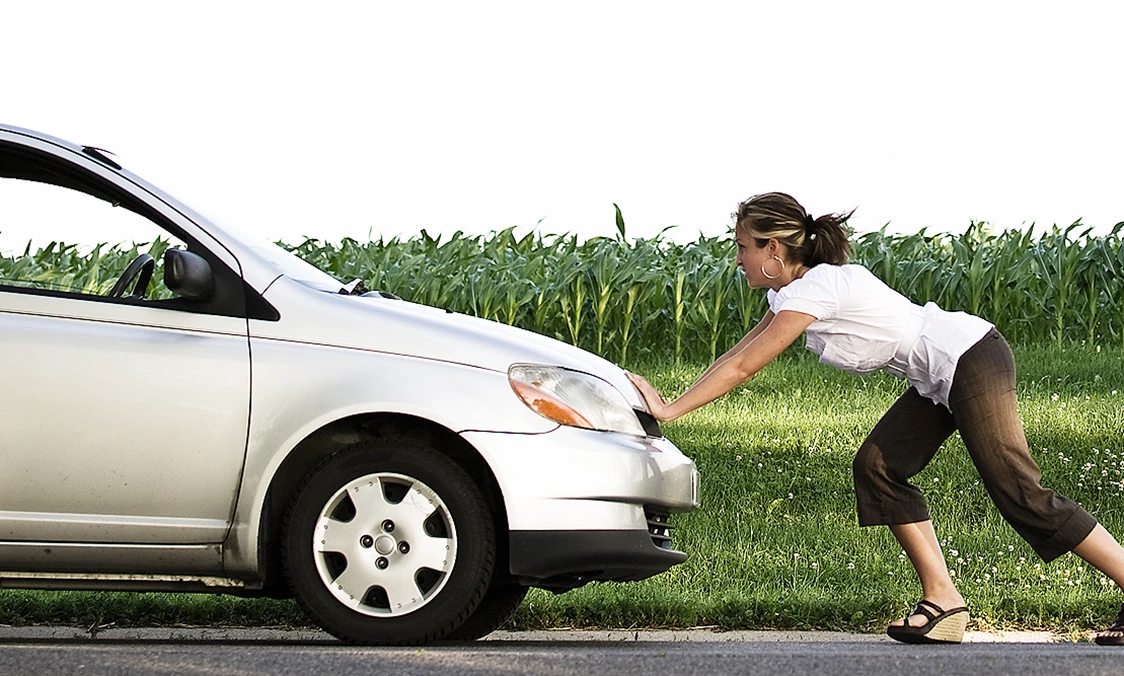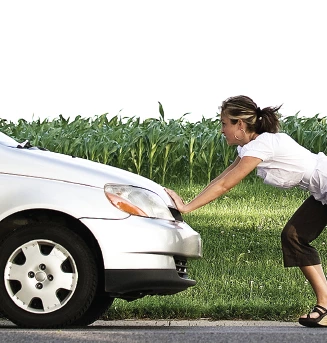When Metal Meets Metal (Wheel Bearings)
February 23, 2020
What part of your vehicle has little metal balls inside that are lubricated and allow you to cruise on down the road? They are wheel bearings, and automotive designers might argue they are human beings' second greatest invention of all time (the first is, of course, the wheel!).
You have a wheel bearing at each wheel. They allow your wheels to turn freely, minimizing friction that would ordinarily slow you down when metal meets metal. When one of your wheel bearings starts to go bad, it lets you know. A wheel bearing does its work quietly when it's in good health but starts getting noisy when it isn't. People describe the noise differently. Sometimes it sounds like road noise, a pulsating, rhythmic, sound. That pulse speeds up when your vehicle speeds up.
Here's what's happening when you hear that sound. As mentioned, the bearing has these little metal balls inside a ring. They have a lubricant inside to reduce friction between the balls; modern wheel bearings are sealed and they're intended to do their job without any maintenance.
Wheel bearings take a beating; you hit some rough potholes or go over some uneven railroad tracks. Sometimes water can get into a bearing and reduce the ability of the lubricant to do its job. Time starts to take its toll, too. When the lubricant isn't reducing friction like it should, the bearing can heat up. One of those little balls can start shedding pieces of metal and soon those shards start grinding up the other balls. Friction takes over and soon your wheel isn't turning smoothly. That's what's causing the sound. If a wheel bearing is not fixed, it could eventually seize up completely, and you can be stranded.
It's a lot easier if you heed the early warning signals, that pulsating noise. Now, sometimes a similar noise can be caused by a bad tire, but in either case, it's important to have it checked out. Our Auto Pro Troy technicians will be able to tell you fairly quickly what the problem is and offer a solution.
Wheel bearings generally don't fail often and usually last from 85,000-100,000 miles/140,000km to 160,000km. But consider them a long-term maintenance item that, once fixed, will keep you heading smoothly to the next destination.
Auto Pro Troy
512 East Maple Rd.
Troy, Michigan 48083
248-270-3002
Need Service?
More articles from Auto Pro Troy Auto Repair

Do I Need Brake Service? (Brake Service)
February 16, 2025
Think of how many times you put your foot on your vehicles brake pedal every day. And think of how much you rely on your brakes to slow down and stop your momentum. When it comes to safety systems, your brakes are at the top of the list, and thats why its so important to keep them in top condit... More

Getting Off to a Running Start (Starter Replacement)
February 9, 2025
When you start your vehicles engine, theres another motor that makes that whole process possible. Its called the starter, and its a small electric motor that gets your vehicle running. As you can imagine, its quite a chore for a little electric motor to turn over the big engine that powers you... More

Braking Good (Brake Drum Replacement)
February 2, 2025
Maybe your vehicle feels like Breaking Bad. In other words, when you brake, things are bad. You may find it takes you a longer distance to stop, you feel a vibration, or its pulsating when you depress the brake pedal, or perhaps your vehicle pulls to one side. Those can be symptoms of failing b... More










